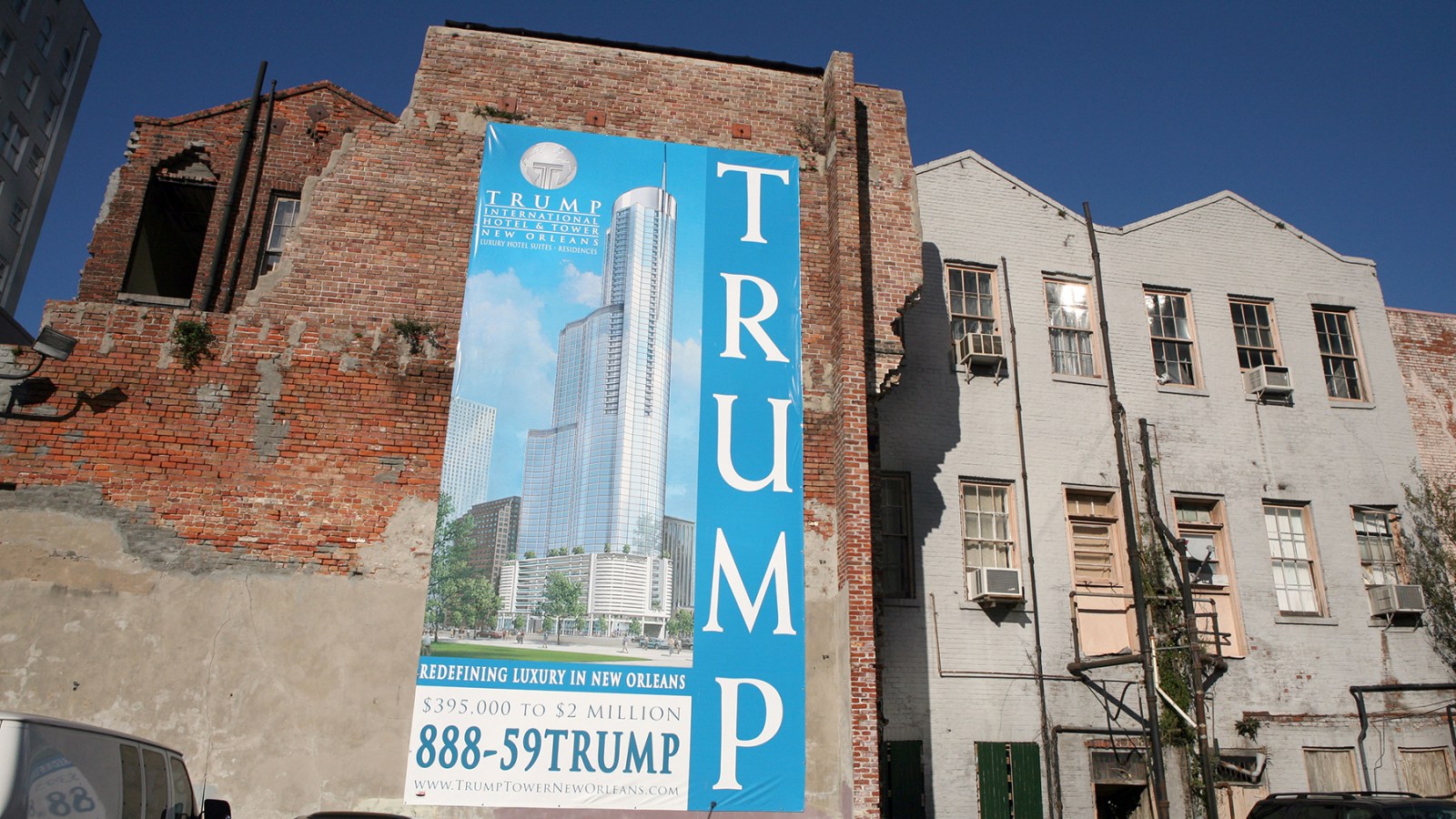I
n 2005, Donald Trump announced plans to build a 70-story high-rise in downtown New Orleans, which he called the "Trump Tower." The project was supposed to be a game-changer for the city, with a condominium-hotel, five-star restaurant, and retail space. However, behind the scenes, Trump was trying to back out of the deal.
After Hurricane Katrina hit four days later, Trump continued to pledge his commitment to the project, saying it would help rebuild the city. The developers lobbied Congress for incentives to make the tower more feasible, including tax benefits and public interest bonds. A Times-Picayune article in November 2005 headlined "Tower could power New Orleans revival."
Despite the hype, Trump later admitted that he had offered the Florida developers their money back after Katrina, but they refused. The project stalled, with prices for condos starting at $400,000 and going up to $2 million. A website for the project featured an introductory video with Don Jr. and Ivanka wearing masquerade masks, touting the tower as a symbol of luxury.
Citizens wrote in both support and opposition to the project, with some defending it as a way to revitalize the city's economy. However, years later, the parking lot where the tower was supposed to be built was sold at a foreclosure auction. In 2016, during Trump's presidential campaign, the Democratic National Convention tried to use his failed attempt against him.
Trump's business practices have been criticized for leaving buyers in the dark about licensing deals and financial commitments. A similar failed project in Tampa Bay left buyers distraught after sinking hundreds of thousands of dollars into something they believed was managed by Trump himself.














